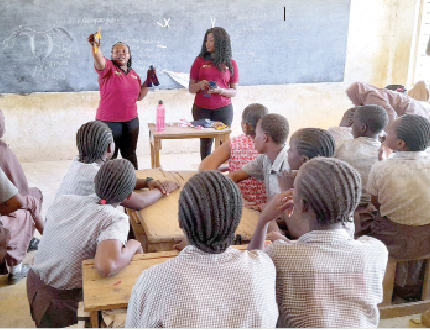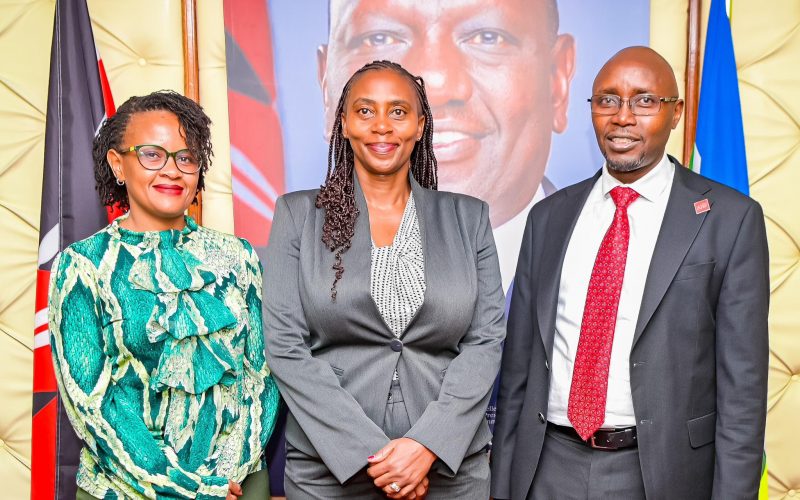Global Menstrual Hygiene Day: MOH pledges enhanced menstrual health

The Ministry of Health has confirmed its ongoing commitment to improving menstruation health and hygiene across the country.
Joining the world in marking the Menstrual Hygiene Day, Mary Muthoni Muriuki, Principal Secretary of the state department of Public Health and Professional Standards emphasized the importance of ensuring that every woman and girl can manage menstruation with dignity and safety.
𝐊𝐞𝐧𝐲𝐚𝐧 𝐌𝐢𝐧𝐢𝐬𝐭𝐫𝐲 𝐨𝐟 𝐇𝐞𝐚𝐥𝐭𝐡 𝐏𝐥𝐞𝐝𝐠𝐞𝐬 𝐄𝐧𝐡𝐚𝐧𝐜𝐞𝐝 𝐌𝐞𝐧𝐬𝐭𝐫𝐮𝐚𝐥 𝐇𝐞𝐚𝐥𝐭𝐡 𝐨𝐧 𝐆𝐥𝐨𝐛𝐚𝐥 𝐌𝐞𝐧𝐬𝐭𝐫𝐮𝐚𝐥 𝐇𝐲𝐠𝐢𝐞𝐧𝐞 𝐃𝐚𝐲
— Ministry of Health (@MOH_Kenya) May 28, 2024
Nairobi, Kenya – May 28, 2024
Today, as Menstrual Hygiene Day is commemorated globally, the Ministry of… pic.twitter.com/Db1JqDh1QH
Muthoni also stated that obstacles remain in Kenya’s menstrual dignity goals, requiring ongoing support and development efforts.
“We have made significant strides in providing accurate information on menstruation and promoting affordable access to quality menstrual products and sanitation facilities,” Muthoni stated.
“Sustainable menstrual waste management practices have been implemented through initiatives such as the ‘Epuka Uchafu Campaign,” she added.
Kenya launched its Menstrual Hygiene Management (MHM) Policy in May 2020, amidst the COVID-19 pandemic, marking significant progress in integrating MHM into various government initiatives.

The MHM policy was aimed at ensuring all women and girls in Kenya can manage menstruation hygienically, freely, with dignity, without stigma or taboos while enabling access to the proper information about MHM; menstrual products, services, and facilities; and the safe disposal of menstrual waste.
According to research conducted by the Ministry of Health in 2016, Kenyan women and girls have limited access to menstrual hygiene products, which has been linked to risky sexual behavior and educational barriers, particularly in schools with poor Water, Sanitation, and Hygiene (WASH) conditions.
Partnerships for menstrual hygiene
She also pointed out how crucial partnerships with organizations like USAID, Amref, and UNICEF have supported county-level implementation of the MHM policy.
“We issue a call to action to organizations and implementers to support county-level implementation of the MHM Policy and advocate for its full implementation by the National Government,” Muthoni emphasized.
“Opportunities for partnership and collaboration abound, aimed at strengthening the market base for MHM products and services,” she continued.
The Ministry remains steadfast in its commitment to fostering an enabling environment where every woman and girl can manage menstruation with dignity and safety, envisioning a future where menstruation is not a barrier to education, health, or empowerment.








